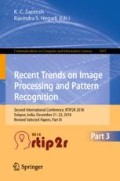Abstract
The Explosive development in the social media domain has created a platform for mass generation of textual and emoticon based web data from micro blogging sites. Sentimental Analysis refers to analysis of sentiments or emotions from such heterogeneous reviews are the present urge of the market. Thus, an effective emoticon based framework is proposed which generates scores of both textual and emoticons into seven layered categories using SentiWordNet and weighs performance of various machine learning techniques like SVM/SMO, K-Nearest Neighbor (IBK), Multilayer Perception (MLP) and Naive Bayes (NB). Using Jsoup crawler input reviews are obtained and processed with initial pre-processing model for emoticons and text data followed by stemming and POS tagger. Projected framework is investigated on college and hospital dataset obtaining upper attainment level by Kappa statistic metrics having 98.4% correctness and lesses bug value. Proposed Framework showcases greater competence score with lesser FP Rate based on weighted average of correctness measures. The investigational outcomes are tested on training data with Ten-Fold cross validation. The outcome reveals that suggested emoticon based framework for the task of Sentimental analysis can be efficaciously applied in online decision job.
Access this chapter
Tax calculation will be finalised at checkout
Purchases are for personal use only
References
Bouguelia, M.R., Nowaczyk, S., Santosh, K.C., et al.: Agreeing to disagree: active learning with noisy labels without crowdsourcing. Int. J. Mach. Learn. Cybern. 9, 1307 (2018). https://doi.org/10.1007/s13042-017-0645-0
Dang, Y., Zhang, Y., Chen, H.: A lexicon-enhanced method for sentiment classification: an experiment on online product reviews. Intell. Syst. IEEE 25(4), 46–53 (2010)
Virmani, D., Malhotra, V., Tyagi, R.: Sentimental analysis using collaborated opinion mining. Int. J. Soft Comput. Eng. 4(ICCIN-2014) (2014). ISSN 2331–2037
Liang, P.-W., Dai, B.-R.: Opinion mining on social media data. In: 14th International Conference on Mobile Data Management (MDM), vol. 2. IEEE (2013)
Li, L., et al.: Multi-domain active learning for text classification. In: Proceedings of the 18th ACM SIGKDD International Conference on Knowledge Discovery and Data Mining. ACM (2012)
Li, G., Liu, F.: A clustering-based approach on sentiment analysis. In: International Conference on IEEE Intelligent Systems and Knowledge Engineering (ISKE) (2010)
Ohana, B., Tierney, B.: Sentiment classification of reviews using SentiWordNet. In: 9th IT&T Conference. Dublin Institute of Technology, Dublin, Ireland, p. 13 (2009)
Pang, B., Lee, L., Vaithyanathan, S.: Thumbs up?: sentiment classification using machine learning techniques. In: Proceedings of the ACL-02 Conference on Empirical Methods in Natural Language Processing-Volume 10, pp. 79–86. Association for Computational Linguistics (2002)
Vaidya, S., Rafi, M.: An improved SentiWordNet for opinion mining and sentiment analysis. J. Adv. Database Manag. Syst. 1(2), 1–7 (2014)
Vajda, S., Santosh, K.C.: A fast k-nearest neighbor classifier using unsupervised clustering. In: Santosh, K.C., Hangarge, M., Bevilacqua, V., Negi, A. (eds.) RTIP2R 2016. CCIS, vol. 709, pp. 185–193. Springer, Singapore (2017). https://doi.org/10.1007/978-981-10-4859-3_17
Author information
Authors and Affiliations
Corresponding author
Editor information
Editors and Affiliations
Rights and permissions
Copyright information
© 2019 Springer Nature Singapore Pte Ltd.
About this paper
Cite this paper
Ahamed, S., Danti, A. (2019). Effective Emoticon Based Framework for Sentimental Analysis of Web Data. In: Santosh, K., Hegadi, R. (eds) Recent Trends in Image Processing and Pattern Recognition. RTIP2R 2018. Communications in Computer and Information Science, vol 1037. Springer, Singapore. https://doi.org/10.1007/978-981-13-9187-3_55
Download citation
DOI: https://doi.org/10.1007/978-981-13-9187-3_55
Published:
Publisher Name: Springer, Singapore
Print ISBN: 978-981-13-9186-6
Online ISBN: 978-981-13-9187-3
eBook Packages: Computer ScienceComputer Science (R0)

